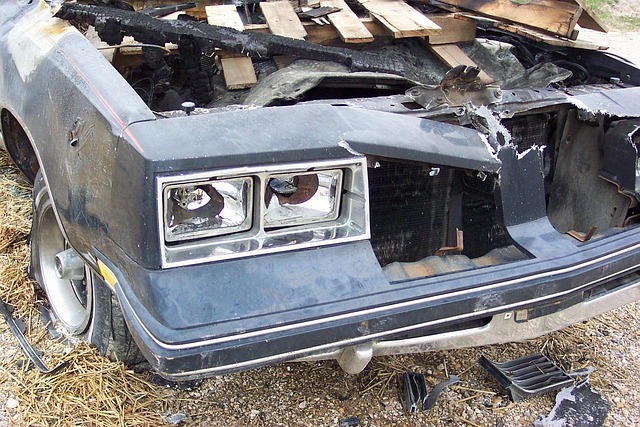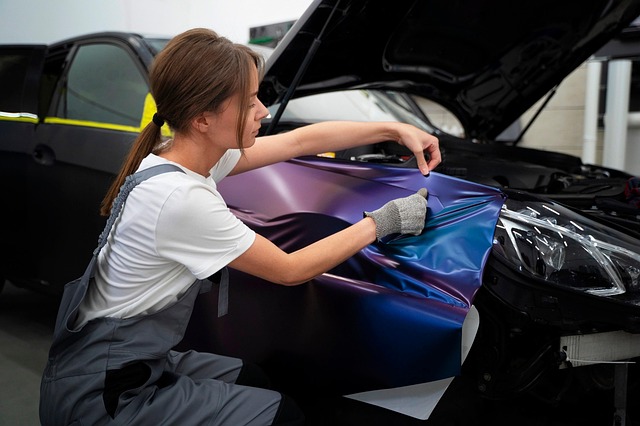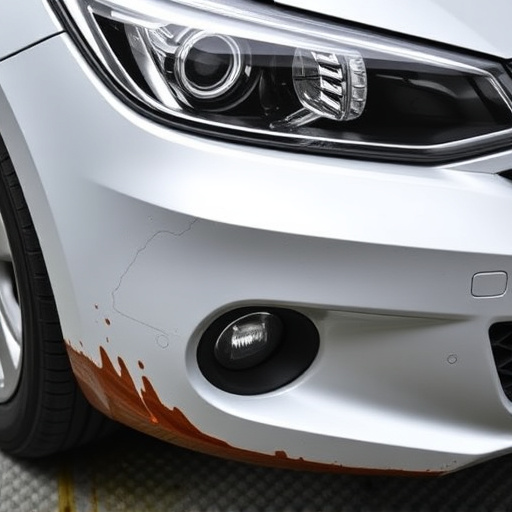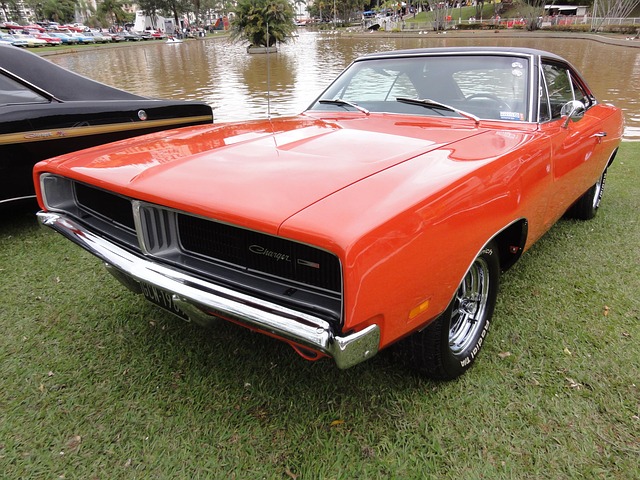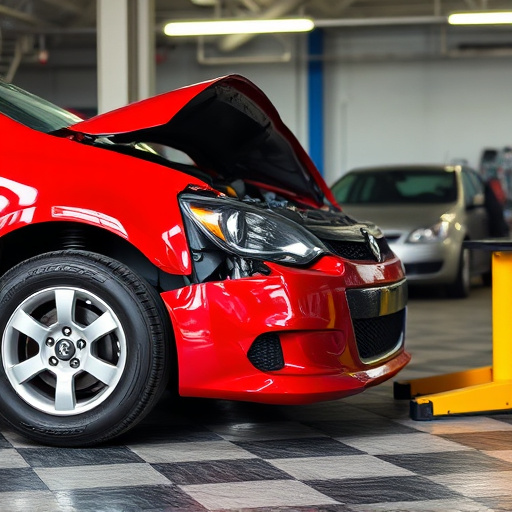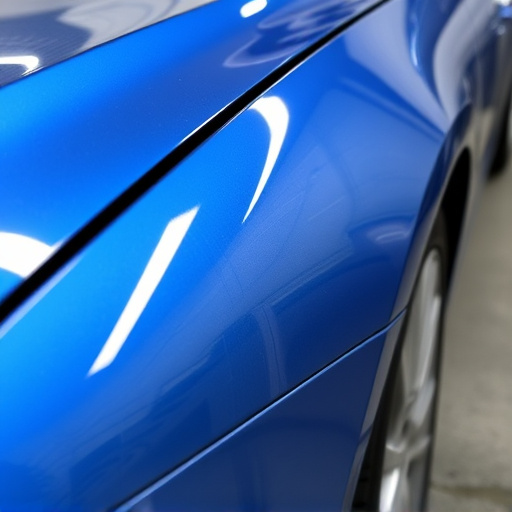Mercedes' infrared-reflective glass revolutionizes cars by reflecting infra-red radiation, keeping interiors cool and reducing cabin noise. This technology minimizes solar heat gain for improved energy efficiency and enhanced night visibility. It blocks external noises while allowing essential communication frequencies, making driving more comfortable, especially in urban areas. Beyond new vehicles, it benefits collision repair and restoration services, offering quieter, more satisfied customers.
Mercedes infrared-reflective glass is a cutting-edge technology designed to revolutionize cabin noise reduction. This innovative material uses specialized infrared coating to reflect heat and block sound waves, creating a quieter, more comfortable driving environment. By understanding the science behind this technology, we can appreciate its effectiveness in mitigating noise pollution within vehicles. This article explores how Mercedes infrared glass works, its benefits, and potential future applications that could shape the automotive industry’s focus on passenger comfort and safety.
- Understanding Mercedes Infrared-Reflective Glass Technology
- How Mercedes Infrared Glass Reduces Cabin Noise
- Benefits and Future Applications of This Innovation
Understanding Mercedes Infrared-Reflective Glass Technology

Mercedes infrared-reflective glass technology is a game-changer in automotive design and passenger comfort. This innovative material goes beyond traditional window glass by incorporating special coatings that reflect a significant portion of incoming infrared radiation, primarily from the sun. By doing so, it helps maintain a cooler interior cabin, reducing the need for excessive air conditioning.
This advanced technology is particularly beneficial during hot summer days, when driving can turn into a sauna experience inside the vehicle. The reflective glass not only keeps the interior comfortable but also contributes to energy efficiency by lowering the overall temperature of the car. In terms of auto maintenance and body shop services, adopting this technology could lead to fewer requests for fender repair due to excessive heat-related damage on conventional windows.
How Mercedes Infrared Glass Reduces Cabin Noise
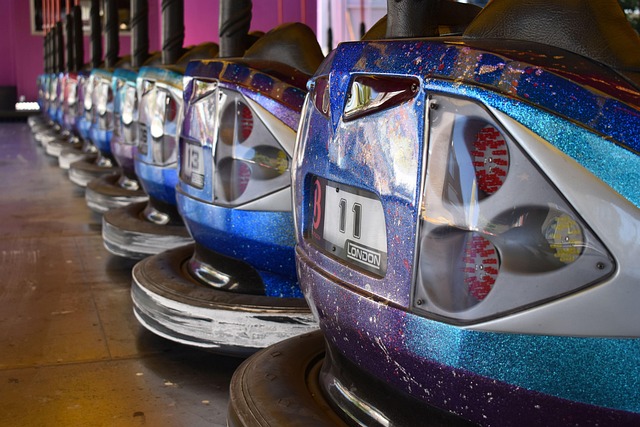
Mercedes infrared-reflective glass is a cutting-edge technology that significantly contributes to cabin noise reduction in modern vehicles. This innovative type of glass is designed to reflect and dissipate infra-red energy, which plays a crucial role in minimizing sound transmission from both outside sources and internal vehicle components. By blocking heat transfer, the glass acts as a barrier against noise, creating a quieter space for passengers.
In addition to its noise-cancelling properties, Mercedes infrared-reflective glass also offers several other benefits. It helps maintain a comfortable cabin temperature by reducing solar heat gain, thereby improving energy efficiency. Moreover, its reflective surface can enhance visibility during night driving conditions, making it a valuable asset for drivers. For those seeking superior vehicle protection and comfort, auto repair shops often recommend Mercedes infrared-reflective glass as part of their auto body services, ensuring a smoother and more enjoyable driving experience.
Benefits and Future Applications of This Innovation

The Mercedes infrared-reflective glass represents a significant innovation in automotive technology, offering multiple benefits for both vehicle manufacturers and owners. By actively reducing cabin noise, this advanced glass type contributes to an enhanced driving experience, especially in urban environments where traffic noise can be a persistent issue. The technology works by reflecting certain frequencies of sound waves, blocking out unwanted noises from the outside while allowing essential communication frequencies to pass through, ensuring clear conversations even during journeys through noisy areas.
Looking ahead, the potential applications of Mercedes infrared-reflective glass extend beyond current uses in new vehicle models. Collision repair centers and car restoration specialists could incorporate this innovation into their services, providing customers with quieter, more comfortable vehicles after accidents or extensive renovations. This adaptation would not only improve customer satisfaction but also position these businesses as pioneers in integrating cutting-edge technologies into traditional automotive repair and restoration practices.
Mercedes infrared-reflective glass represents a significant advancement in automotive technology, offering an innovative solution to cabin noise reduction. By employing specialized infrared-reflective coatings, these glasses not only enhance driver and passenger comfort but also contribute to improved energy efficiency within the vehicle. As research progresses, we can expect further refinements in this technology, potentially leading to quieter, more enjoyable driving experiences across various vehicle types. The future of travel looks brighter with such game-changing innovations in materials science.
